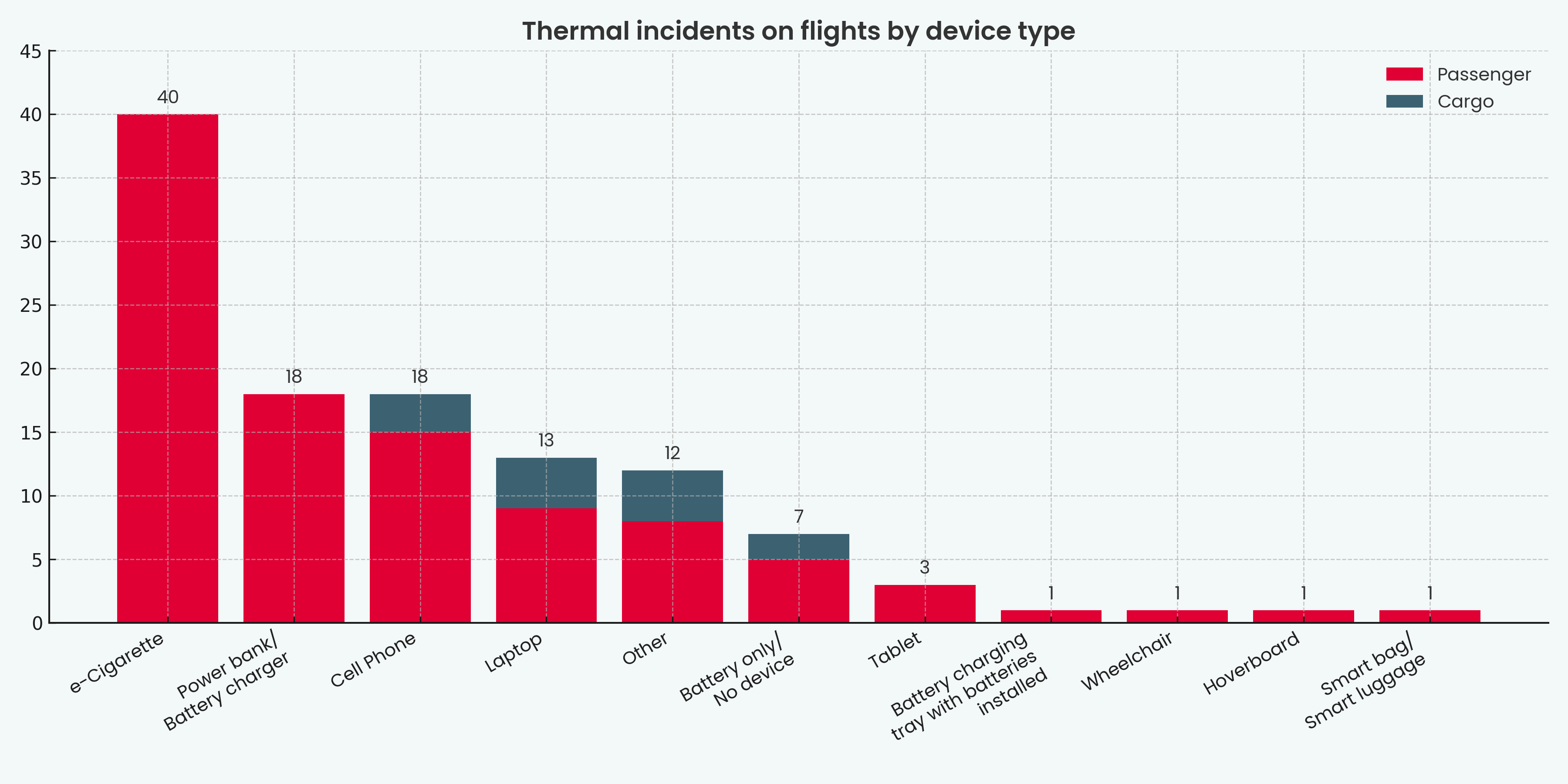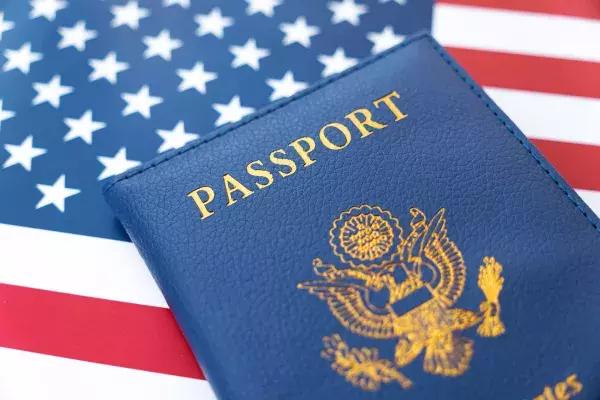17 June 2025 | Blog
Power banks and policy: what airlines need to get right before take-off
17 June 2025 | Blog
Power banks and policy: what airlines need to get right before take-off
As lithium-powered devices become essential travel companions, airlines are tightening rules around power banks to protect passenger safety. But a lack of consistency between carriers is fuelling confusion and operational headaches. We explore the current landscape and what it means for the future of flying.
The problem: rising safety concerns around power banks and inconsistent airline policies
Lithium-ion batteries, especially those in power banks, are now a significant safety concern for airlines. In 2024, the U.S. Federal Aviation Administration reported 89 incidents involving batteries overheating or causing fires on aircraft. 2023 data from UL Standards & Engagement shows that power banks are among the leading causes of in-flight thermal incidents.

This increase in incidents has led airlines around the world to review and update their rules for carrying and using power banks on flights.
But these new rules are not the same for every airline. Some airlines have decided to ban power banks during flights, while others still allow them but with certain restrictions. Because each carrier manages this in a different way, passengers often end up confused. The lack of consistency creates frustration and, more importantly, raises safety risks.
Operational disruption for airlines and passenger dissatisfaction
Unclear policies or changes without enough notice are a significant contributor to unnecessary delays at the airport, as displayed recently by the chaos caused by a lack of information around Real ID requirements in the US.
Passengers who do not know about the latest rules can unintentionally cause delays, as airport staff are left to explain the restrictions or even confiscate items at the gate. And even more importantly, there are serious safety risks involved as well. Recently, a Southwest Airlines flight had to make an emergency landing after a power bank started smoking on board. This happened just one day after the airline updated its rules.
"Few events strike more fear in the hearts of aviators than an inflight fire. While there have been many sources of fires over the years, lithium batteries have been recognised as a primary risk factor."
Shem Malmquist, Airline pilot and Aviation safety expert (AvSax)
Events like this not only disrupt flights, they also damage the trust passengers have in airlines. A recent McKinsey study found that only 59% of airline customers felt satisfied with their pre-flight experience, leaving plenty of room for improvement.
How airlines are changing their rules on power banks and lithium battery safety
Airlines are taking different approaches to address the risks linked to lithium batteries and power banks:
- Southwest Airlines now asks passengers to keep portable chargers visible at all times while in use. Charging devices from power banks inside bags or overhead lockers is no longer allowed.
- In early 2025, Singapore Airlines, Thai Airways banned the use or charging of power banks during flights from April 2025.
- Cathay Pacific and Hong Kong Airlines also prohibited the use or charging of power banks and require them to be stored under seats or in seat pockets.
- From March 2025 Scoot limited the capacity of power banks which can be brought onboard their flights.
Laptops, cell phones, power banks, gaming devices, e-cigarettes... these common items are often powered by lithium batteries and must be with you in the aircraft cabin, not in your checked bag. Learn about other dangerous goods and how to #PackSafe at https://t.co/luKoFwq334.… pic.twitter.com/nnjtcuKUTp
— The FAA ✈️ (@FAANews) March 21, 2025
Because these policies are not the same everywhere, what is allowed on one airline or one route may not be permitted on another. As a result, many travellers arrive at the airport unsure about the rules, causing unnecessary confusion for both staff and passengers.
The solution: clear, timely communication about battery pack policy
The best way for airlines to manage this challenge is by making sure passengers get accurate information before they reach the airport. Relying on website FAQs or airport signs is not enough. Automated communications sent prior to departure help airlines give passengers personalised, current instructions, sent through several channels based on their booking and route.
15below’s Pre-Departure Communications solution helps airlines:
- Share tailored information with every passenger, so there is no uncertainty about what they can bring.
- Update travellers quickly if rules change.
- Answer common questions before they become issues at check-in or boarding.
Nicholas Key, CEO of 15below, comments on the situation:

Airlines that use automated messaging have seen fewer boarding delays, less confusion, and higher Net Promoter Scores. This approach not only helps prevent safety incidents, it also builds trust and loyalty.
How airlines can build trust as well as safety
Safety policies will keep changing as technology evolves. What matters most to passengers is being confident that they know what to expect. When airlines keep customers informed, flights are smoother, staff can focus on service, and passengers feel supported at every stage.
Learn more about how 15below’s pre-departure communications can help your airline keep passengers informed and operations running smoothly.




